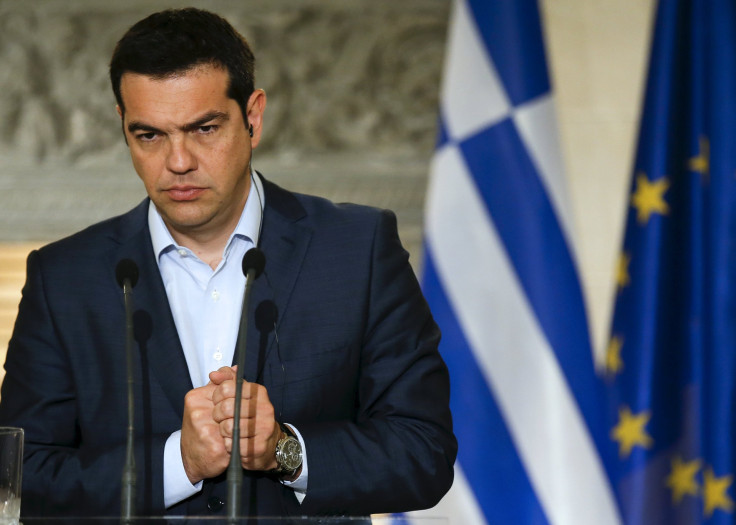Greece Drawing Up Last-Ditch Proposal To Try And Avoid Default

Greece's government is reportedly drawing up last-ditch proposals to present its international creditors at a meeting Monday, in what could be the country's last opportunity to agree a deal that allows it to avoid defaulting on its debts and possibly crashing out of the euro.
According to two Greek officials, cited by the Wall Street Journal, the leftist Syriza-led government is putting together a plan that they hope would achieve budget targets that bailout creditors want, while relying more on eliminating tax breaks and less on pension cuts than the lenders’ own proposal.
The Greek cabinet is reportedly due to discuss the proposal on Sunday morning. Any fresh proposal the country puts to its creditors on Monday would be the third such submission in as many weeks.
In a column for Germany's Frankfurter Allgemeine Sonntagszeitung, Finance Minister Yanis Varoufakis promised that Greece was prepared to offer concessions, Reuters reported.
"Our side will arrive in Brussels with the determination to compromise further as long as we are not asked to do what previous governments did: to accept new loan tranches under conditions that offer little hope that Greece can repay its debts,” he wrote.
He said German Chancellor Angela Merkel faced a "stark choice" over whether to accept an agreement, adding: "The choice, I am very much afraid, is hers."
Greece has until June 30 to secure the release of €7.2 billion in bailout funds. Failure to unlock the funds will result in default, as Greece owes €1.6 billion to the International Monetary Fund at the end of the month.
Athens' refusal to make significant cuts to pensions has been a major stumbling block in negotiations with its creditors in recent months. The Syriza government sees such cuts as emblematic of the austerity policies they were elected to oppose.
However, with European leaders losing patience after months of fruitless negotiation, and the pressure on the country's banks ratcheting up in recent days, the government may be forced to offer further concessions.
On Friday the president of the European council, Donald Tusk, who convened Monday’s summit, warned that either Greece accepted painful reforms, reportedly at a cost of €5bn, he suggested, or it would go bust, the Guardian reported.
Bank withdrawals by Greek savers between Monday and Friday reached about €4.2 billion, which represents about 3 percent of household and corporate deposits held by Greek banks at the end of April. Close to €1 billion was withdrawn on Friday alone, according to agencies cited by the BBC.
© Copyright IBTimes 2025. All rights reserved.






















